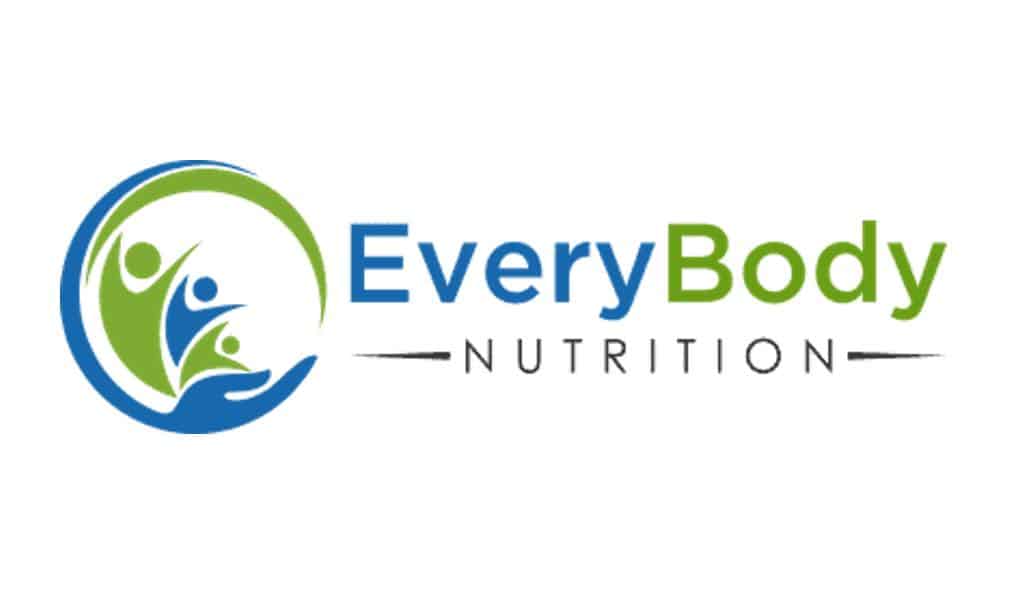Understanding Omega-3 and Fish Oil
Omega-3 fatty acids are essential nutrients that play a crucial role in maintaining overall health. These fatty acids are polyunsaturated fats, and they are classified into three main types: ALA (alpha-linolenic acid), EPA (eicosapentaenoic acid), and DHA (docosahexaenoic acid). While ALA is mainly found in plant sources like flaxseeds and walnuts, EPA and DHA are primarily sourced from fatty fish and fish oil supplements.
Importance of Omega-3 for Overall Health
The significance of Omega-3 fatty acids for overall health cannot be overstated. These essential fats contribute to the proper functioning of the body and are particularly known for their benefits in heart health, brain function, and inflammation reduction. Incorporating Omega-3 into your diet or through supplements can be a proactive step towards maintaining optimal health.
Different Types of Omega-3 Fatty Acids
- ALA (Alpha-linolenic acid): Found in plant sources like flaxseeds, chia seeds, and walnuts, ALA is a precursor to EPA and DHA but is not as efficiently converted in the body.
- EPA (Eicosapentaenoic acid): Primarily sourced from fatty fish like anchovies, sardines, salmon, mackerel, and tuna, EPA is known for its anti-inflammatory properties and benefits for heart health.
- DHA (Docosahexaenoic acid): Like EPA, DHA is abundant in fatty fish and is essential for brain health, particularly during pregnancy and early childhood.
Benefits of Omega-3 Supplements
Heart Health and Omega-3
Omega-3 fatty acids have been extensively studied for their positive impact on heart health. EPA and DHA play a crucial role in reducing triglycerides, lowering blood pressure, and preventing the formation of blood clots. Regular consumption of Omega-3 supplements has been associated with a lower risk of heart disease.
Brain Function and Omega-3
DHA, a major component of the brain, is essential for cognitive function and development. Omega-3 supplements, particularly those rich in DHA, are believed to support brain health, enhance memory, and reduce the risk of age-related cognitive decline.
Inflammation Reduction with Omega-3
Chronic inflammation is linked to various health issues, including heart disease and arthritis. Omega-3 fatty acids, especially EPA, exhibit anti-inflammatory properties, helping to mitigate inflammation and promote overall well-being.
Different Forms of Omega-3 Supplements
Capsules, Pills, and Vitamins
Omega-3 supplements are commonly available in various forms, including gel capsules and liquid vitamins. Each form has its pros and cons, and choosing the right one depends on personal preferences and convenience.

Pros and Cons of Each Form
Gel capsules offer convenience and accurate dosage, while liquid vitamins provide flexibility and easier absorption. Consider factors like taste preference, ease of consumption, and any dietary restrictions when selecting the form that suits you best.
Choosing the Best Fish Oil Supplement
Factors to Consider When Selecting a Fish Oil Supplement
When choosing a fish oil supplement, consider factors such as the source of the fish oil, purity, concentration of EPA and DHA, and sustainability practices of the brand. Look for products that undergo third-party testing to ensure quality. HPN N4 is one of our favorite fish oil supplements.
Fish Oil vs. Omega-3
While fish oil is a common source of Omega-3, other options like krill oil and algal oil (suitable for vegetarians and vegans) provide alternatives. Evaluate your preferences, dietary restrictions, and potential environmental impact when selecting the right source.
Clarifying the Distinction
Fish oil generally refers to oil extracted from the tissues of fish, while Omega-3 supplements encompass a broader category that includes various sources of these essential fatty acids.
Recommended Dosage
How Much Fish Oil Should I Take Daily?
The recommended daily dosage of Omega-3 supplements varies based on individual health needs and the specific goals of supplementation. General guidelines suggest a daily intake of 250-750 mg combined EPA and DHA for overall health maintenance.
Factors Influencing the Appropriate Dosage
Factors like age, health conditions, and dietary habits can influence the appropriate dosage of Omega-3 supplements. Consult with a healthcare professional to determine the optimal dosage tailored to your specific needs.
The Best Sources of Omega-3
Natural Sources of Omega-3
Incorporating Omega-3 fatty acids into your diet through natural food sources is a wholesome way to promote overall health. These essential fatty acids come in different forms, with each type playing a unique role in supporting various bodily functions. Here are some natural sources of Omega-3:

- Fatty Fish:
- Fatty fish are among the richest sources of EPA and DHA. Include varieties like salmon, mackerel, sardines, trout, and herring in your diet. Aim for at least two servings per week to meet your Omega-3 needs.
- Flaxseeds:
- Flaxseeds are an excellent plant-based source of ALA, a precursor to EPA and DHA. Ground flaxseeds can be sprinkled on yogurt, added to smoothies, or incorporated into baking for a nutty flavor and Omega-3 boost.
- Chia Seeds:
- Chia seeds are another plant-based powerhouse rich in ALA. These tiny seeds can be soaked in liquid to create a gel-like consistency, making them a versatile addition to puddings, oatmeal, or beverages.
- Walnuts:
- Walnuts are not only a tasty snack but also a good source of ALA. Enjoy a handful as a snack, toss them into salads, or incorporate them into various recipes for a crunchy Omega-3 boost.
- Hemp Seeds:
- Hemp seeds are a complete protein source and contain a healthy balance of Omega-3 and Omega-6 fatty acids. Sprinkle hemp seeds on salads, yogurt, or blend them into smoothies for added nutritional value.
- Algal Oil:
- Algal oil is derived from algae and provides a plant-based alternative to fish oil. It contains both EPA and DHA, making it a suitable choice for individuals following a vegetarian or vegan diet.
- Soybeans and Tofu:
- Soy-based products, such as tofu and edamame, are sources of ALA. Incorporate tofu into stir-fries or salads and enjoy edamame as a snack or side dish.
- Omega-3 Enriched Eggs:
- Some eggs are enriched with Omega-3 through the hens’ diet. Check product labels to find eggs that are higher in Omega-3, providing an easy way to boost your intake.

Incorporating Omega-3 into Your Diet
Omega-3 can be obtained from natural food sources, such as fatty fish (salmon, mackerel, sardines), flaxseeds, chia seeds, walnuts, and algae. Including these foods in your diet contributes to a well-rounded intake of Omega-3 fatty acids.
Tips for Incorporating Omega-3 into Your Routine
Incorporating Omega-3 fatty acids into your daily routine is a simple yet powerful way to enhance your overall health. Whether you choose to obtain them from natural food sources or through supplements, here are some practical tips to seamlessly integrate Omega-3 into your lifestyle:
Practical Ways to Include Omega-3 Supplements
- Frequent Fatty Fish Consumption:
- Include fatty fish such as salmon, mackerel, sardines, and trout in your weekly meal plans. Aim for at least two servings per week to meet your Omega-3 requirements. This can be further complemented by fish oil supplements like MTS Fish Oil and HPN (N4) Icelandic Omega 3 Fish Oil.
- Explore Plant-Based Options:
- If you follow a vegetarian or vegan diet, explore plant-based sources of ALA, such as flaxseeds, chia seeds, hemp seeds, and walnuts. While these contain a precursor to EPA and DHA, incorporating them into salads, smoothies, or as snacks can contribute to your Omega-3 intake.
- Omega-3 Enriched Foods:
- Look for Omega-3 enriched foods in your local grocery store. Some products, like certain types of eggs, yogurt, and milk, are fortified with these essential fatty acids, providing an easy way to boost your intake.
- Try Algal Oil Supplements:
- For individuals following a plant-based or vegetarian lifestyle, consider algal oil supplements. Derived from algae, these supplements offer a direct source of both EPA and DHA, mirroring the benefits of fish oil.
- Experiment with Recipes:
- Get creative in the kitchen by experimenting with Omega-3-rich recipes. Incorporate flaxseed oil into salad dressings, add chia seeds to your morning smoothie, or prepare grilled fish dishes with a variety of herbs and spices.
- Blend Omega-3 into Smoothies:
- If the taste or texture of Omega-3 supplements is a concern, blend them into your daily smoothies. Liquid supplements or fish oil can be easily incorporated, masked by the flavors of fruits and vegetables.
- Set a Daily Reminder:
- Consistency is key when it comes to nutritional habits. Set a daily reminder on your phone or incorporate Omega-3 consumption into an existing routine, like taking them with your morning vitamins or during a specific meal.
Conclusion
Ensuring an adequate intake of Omega-3 is a proactive step toward maintaining overall health. Whether through natural food sources or supplements, prioritizing Omega-3 can contribute to heart health, support cognitive function, and reduce inflammation. Selecting the best fish oil supplement involves considering various factors, including source, purity, and personal preferences. With this guide, you can make informed choices to optimize your Omega-3 intake for a healthier life.
Frequently Asked Questions (FAQs)
What are Omega-3 fatty acids?
Omega-3 fatty acids are essential polyunsaturated fats that play a critical role in maintaining overall health. The three main types are ALA (alpha-linolenic acid), EPA (eicosapentaenoic acid), and DHA (docosahexaenoic acid).
Why are Omega-3 fatty acids important for health?
Omega-3 fatty acids are crucial for heart health, brain function, and reducing inflammation. They contribute to lowering triglycerides, supporting cognitive function, and mitigating chronic inflammation, which is linked to various health issues.
What are the different types of Omega-3 fatty acids?
- ALA: Found in plant sources like flaxseeds and walnuts; a precursor to EPA and DHA.
- EPA: Found in fatty fish; known for its anti-inflammatory properties and benefits for heart health.
- DHA: Found in fatty fish; essential for brain health, particularly during pregnancy and early childhood.
What are the benefits of taking Omega-3 supplements?
Omega-3 supplements support heart health, cognitive function, and inflammation reduction. EPA and DHA are particularly beneficial for lowering blood pressure, improving brain function, and reducing the risk of heart disease.
What forms do Omega-3 supplements come in?
Omega-3 supplements are available in various forms, including gel capsules, pills, and liquid vitamins. Each form has its own advantages, such as convenience and ease of absorption.
How do I choose the best fish oil supplement?
When selecting a fish oil supplement, consider factors like the source of the fish oil, purity, concentration of EPA and DHA, and the brand’s sustainability practices. Look for products that undergo third-party testing to ensure quality.
What’s the difference between fish oil and Omega-3 supplements?
Fish oil specifically refers to oil extracted from the tissues of fish, while Omega-3 supplements can include a broader range of sources, such as fish oil, krill oil, and algal oil.
How much fish oil should I take daily?
The recommended daily dosage of Omega-3 supplements varies, but general guidelines suggest a daily intake of 250-750 mg combined EPA and DHA for overall health maintenance. Individual needs may vary, so consulting a healthcare professional is advisable.
What are the best natural sources of Omega-3?
The best natural sources of Omega-3 include fatty fish (such as salmon, mackerel, and sardines), flaxseeds, chia seeds, walnuts, hemp seeds, and algal oil.
How can I incorporate more Omega-3 into my diet?
You can increase your Omega-3 intake by consuming more fatty fish, adding flaxseeds and chia seeds to meals, using Omega-3 enriched foods, and considering supplements like fish oil or algal oil.
Can vegetarians and vegans take Omega-3 supplements?
Yes, vegetarians and vegans can take Omega-3 supplements sourced from algae, known as algal oil. Algal oil provides both EPA and DHA, similar to fish oil, making it a suitable alternative for those on plant-based diets.
Are there any side effects of taking Omega-3 supplements?
Omega-3 supplements are generally safe for most people. However, high doses may cause side effects like nausea, indigestion, or a fishy aftertaste. It’s important to follow recommended dosages and consult a healthcare provider if you have any concerns.
Can I get enough Omega-3 from food alone?
It is possible to meet your Omega-3 needs through diet alone by regularly consuming Omega-3-rich foods such as fatty fish, flaxseeds, and walnuts. However, supplements can help ensure adequate intake, especially if your diet lacks these foods.
What should I look for on the label of a fish oil supplement?
When choosing a fish oil supplement, check the label for the concentration of EPA and DHA, the source of the fish oil, any certifications for purity and sustainability, and whether the product has been third-party tested.
Is it better to take Omega-3 supplements in the morning or evening?
There is no specific time of day that is best for taking Omega-3 supplements. It can be taken with meals, as this helps improve absorption. Consistency is more important than timing, so take it at a time that fits your daily routine.







